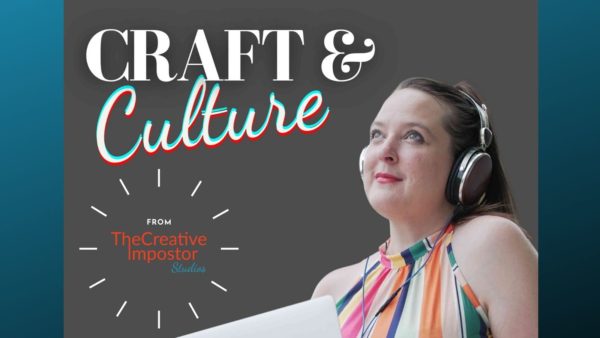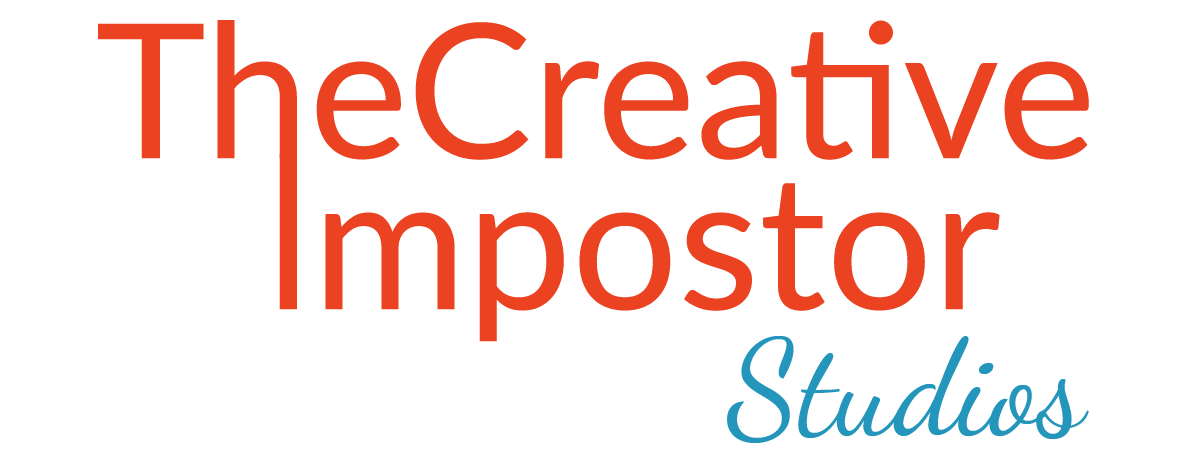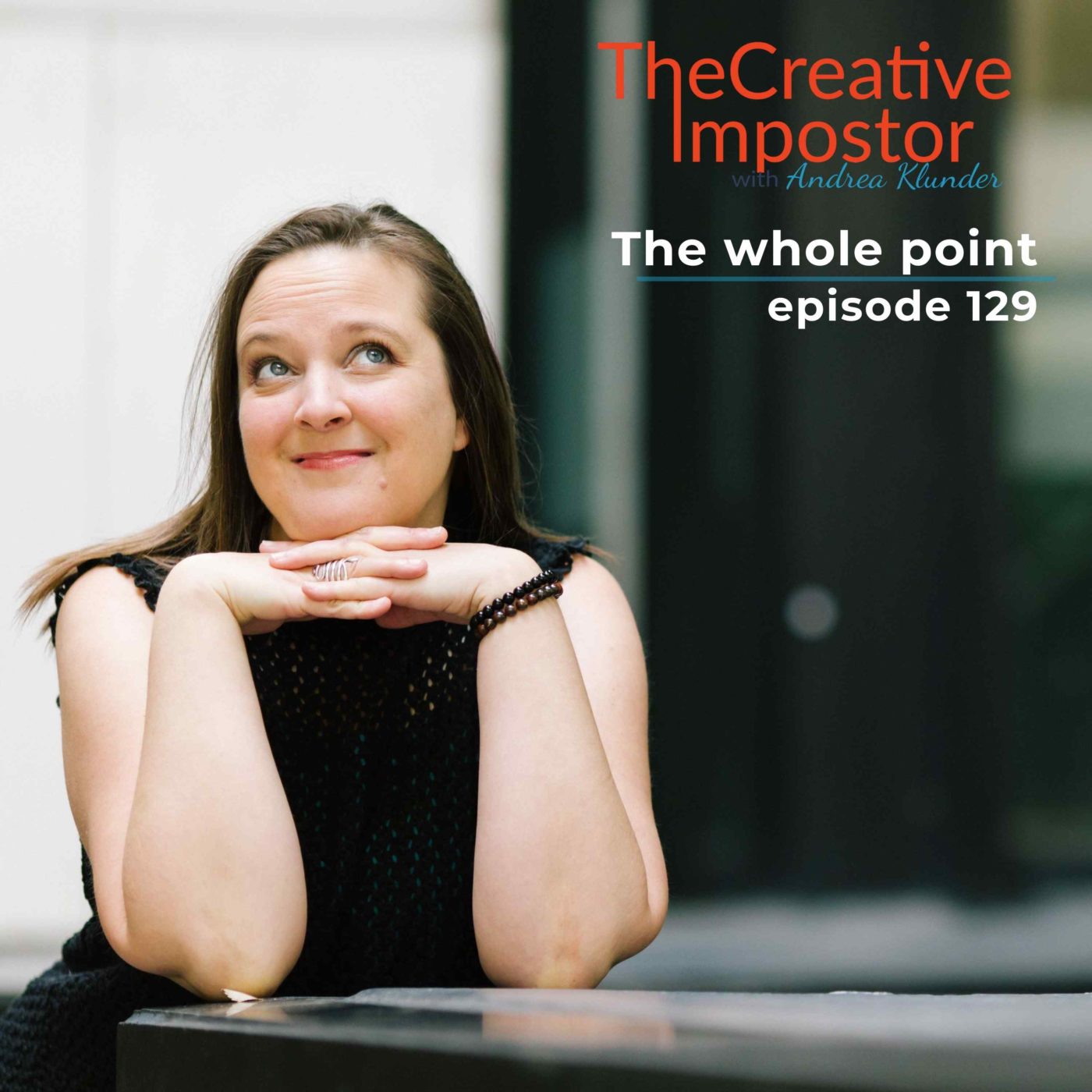“How you see yourself is tied into your experience of the world — to how other people experience you.“
~Andrea Klunder
Let’s connect!
I’ve have TWO opportunities for you…
- Get bonus behind-the-scenes podcast content. Support The Creative Impostor on Patreon.
- Join The Creative Impostor Collective for free on Mighty Networks!
I don’t know about you, but at this moment, at the end of March 2021, moving into April I am feeling like it is time for a shift.
That makes sense. It’s springtime in the Midwest. It’s about those green little plants that are popping up out of the earth. It’s about opening the windows for the first time in ages and doing some spring cleaning, clearing the dust.
And WHOA, has it been one long winter! I’m going to go ahead and categorize summer 2020 as winter, spring 2020 as winter. It was all winter, as far as I was concerned, for, you know, pandemic reasons.
And I decided to do a little spring cleaning for my VOICE with a voice lesson — coaching session actually — but I have not had a voice lesson in more than 10 years and this opened up a bunch of cans of worms (ew!) — about health, recovering from trauma, fears about aging, identity, the way people perceive me, and the stories we tell ourselves.
Continued below…
Follow my next voice journey…
I’m sharing more behind the scenes reflections on the various Podcast Envy and Creative Impostor interview episodes and more of my personal story, in the hopes that it helps you to realize that you are not alone on this creative path and inspires some idea in your creative life and work.
You’ll be helping to support the show (and me!) in exchange for bonus content. You choose your monthly support level of $3, $9, or $27/month.
Podcasting? Save your place in the new Podcast Envy: Craft & Culture Club

Coming soon…
The NEW Craft & Culture membership features YOUR top podcasting questions, and my bossiest podcasting advice.
Article Continued
“I’m not my voice. I’m not my singing. And yet I am. And these two things, my identity and my voice, right now are inextricably intertwined.“
~Andrea Klunder
Voice lessons were something that I used to do regularly from the time that I was in high school, through college, into my twenties. I have a history of opera and musical theater training, singing in church and in the school choir, using my voice to guide yoga classes and meditation sessions, and now with the podcasting and I have even coached other podcasters on how to find more confidence, more freedom, more flexibility, and more expressiveness and their voice.
And now I have hit a wall where I don’t feel like my voice is doing what I want it to be doing.
And I’m not performing anywhere. I feel rusty. And I don’t know what to do next.
During this pandemic period of self-reflection, I’m coming to terms with the only partially resolved trauma of DCIS diagnosis, surgery and reconstruction of 2019, and then being slammed into COVID collective trauma (and everything else that occurred in 2020).
I’ve started to feel old. And by that I don’t mean worrying about my age. I don’t even mean the occasional gray hair popping out of my head. I just mean that my body feels sluggish. I mean, that things feel difficult. And one of the manifestations of this that actually has deep psychological roots for me is that my voice feels tired. It feels weak, it feels restricted.
So I reached out to an old colleague Davin Youngs. (You met Davin back in episode 082.)
In my past voice lessons, there was always this transactional nature. I am taking lessons to be able to do better auditions and get better roles. THIS coaching with Davin was the first time that I was doing a voice coaching with no performance opportunity on the horizon, with no idea what it was I was trying to create or perform where it was literally just about: Let me listen to your voice and both hear what’s happening with the physiology of your voice itself, with the actual mechanics of the sound production, and also let me look at your body when you are creating these sounds and see what is happening.
The thing that Davin said to me was that he was experiencing me as being collapsed and the physical cue that he gave me a couple of times as I was singing these exercises was to roll my shoulders back, to open through the chest, and to not drop my chin.
And I was like, wow. Yeah. What why I really am collapsed through the chest? And yeah, I feel my shoulders slumping forward and collapsed is not the word I would have come up with on my own. But now that he says it, yeah, I feel that way most of the time.
And it’s not collapsed in like a lacking self-confidence way and it’s not collapsed in a disempowered or sad or depressed sort of way. I think it just is the heaviness of everything that has been happening over the past two years end to this intuitive sense of wanting to protect myself. Also there are the physical implications of the fact that I haven’t really physically exercised much in the past year.
The point of why I’m telling you this is because there is a moment in which you realize that the thing that you love to do so, so much that you have loved to do your entire life, has suddenly become hard.
And what does that actually mean for your sense of self, for your identity, for how you see yourself? How you see yourself is tied into your experience of the world, to how other people experience you.
I don’t want to be interacting with people on a day-to-day basis and them feeling like, “Andrea…she’s just really collapsed.”
That’s terrible. That’s not the energy that I want to be putting out into the world. That’s not how I want to be perceived. And it’s definitely not how I think of myself.
I used to think The Creative Impostor was about impostor syndrome, but now I realize that it has evolved and expanded to really be about the intersection between identity and creativity, that place where who we are and what we make mingles, and gets muddy ,and one effects the other.
You know what I’m talking about because you’re here right now.
So yeah, I’m not my voice. I’m not my singing. And yet I am. These two things, my identity and my voice, right now, are inextricably intertwined. And I’m hoping that by exploring my voice now in a new way, with support and help, I’ll be able to come out of this with a new understanding of my identity, of who I am. And I won’t be collapsed anymore.
Mentioned in this episode
Beyond Reproach – Minisode 25 Stop Asian Hate
Conversations With a Wounded Healer – Stop Psychoanalyzing Mass Shooters
NPR’s Life Kit – Talking With Kids About Anti-Asian Racism
Culture Chat with Mimi Chan – 221. THE RISE OF ANTI-ASIAN HATE CRIMES AMIDST COVID19
The Guardian – A specific kind of racism’: Atlanta shootings fuel fears over anti-sex-work ideology by Marie Solis
The Sound of You with Davin Youngs – episode 1
The Creative Impostor ep 082 with Davin Youngs
Connect with me
Join our twice weekly Community Zoom sessions for free! Get the details inside The Creative Impostor Collective on Mighty Networks!
Email or Voice Memo andrea@thecreativeimpostor.com
Instagram: @thecreativeimpostor
LinkedIn: @andreaklunder (I only accept connections from people I actually know, so include a message to say you’re a Creative Impostor listener.)
Show some love for The Creative Impostor!
LOVE The Creative Impostor? I would LOVE if you could leave me a short & sweet review: http://www.ratethispodcast.com/creative. Send me a screenshot and I might even read it on a future episode.
Get your books from somewhere OTHER than Amazon. Bookshop.org is a B-Corp – a corporation dedicated to the public good — online bookstore with a mission to financially support local, independent bookstores. When you order from Bookshop, through my link, 10% of your purchase goes to an earnings pool that will be evenly distributed among independent bookstores and 10% comes to The Creative Impostor studios through their affiliate program.
Grow your own online community using Mighty Networks! It’s where we host The Creative Impostor Collective and when you create your own group with the Business or Community plan, we receive a thank you bonus from them for referring you.

